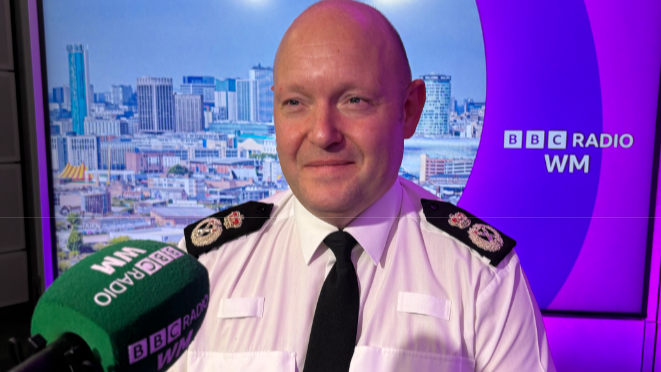Services mark 50th anniversary of pub bombings
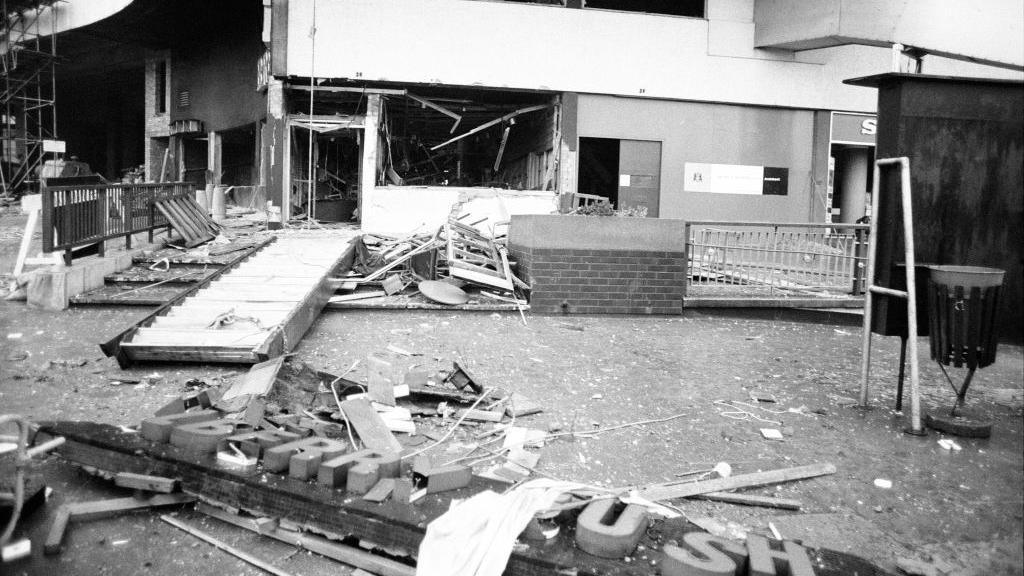
The Mulberry Bush pub lay at the foot of the iconic Rotunda building in Birmingham
- Published
Memorial services are planned to mark the 50th anniversary of the Birmingham pub bombings, in which 21 people died.
The bombs were detonated in the Mulberry Bush and the Tavern in the Town on New Street on the evening of 21 November 1974.
An inquest in 2019 heard 220 people were injured in the attacks, but the perpetrators have never faced justice.
A memorial will start next to New Street at 13:45 GMT on 21 November, with a service at St Phillip's Cathedral at 17:00.
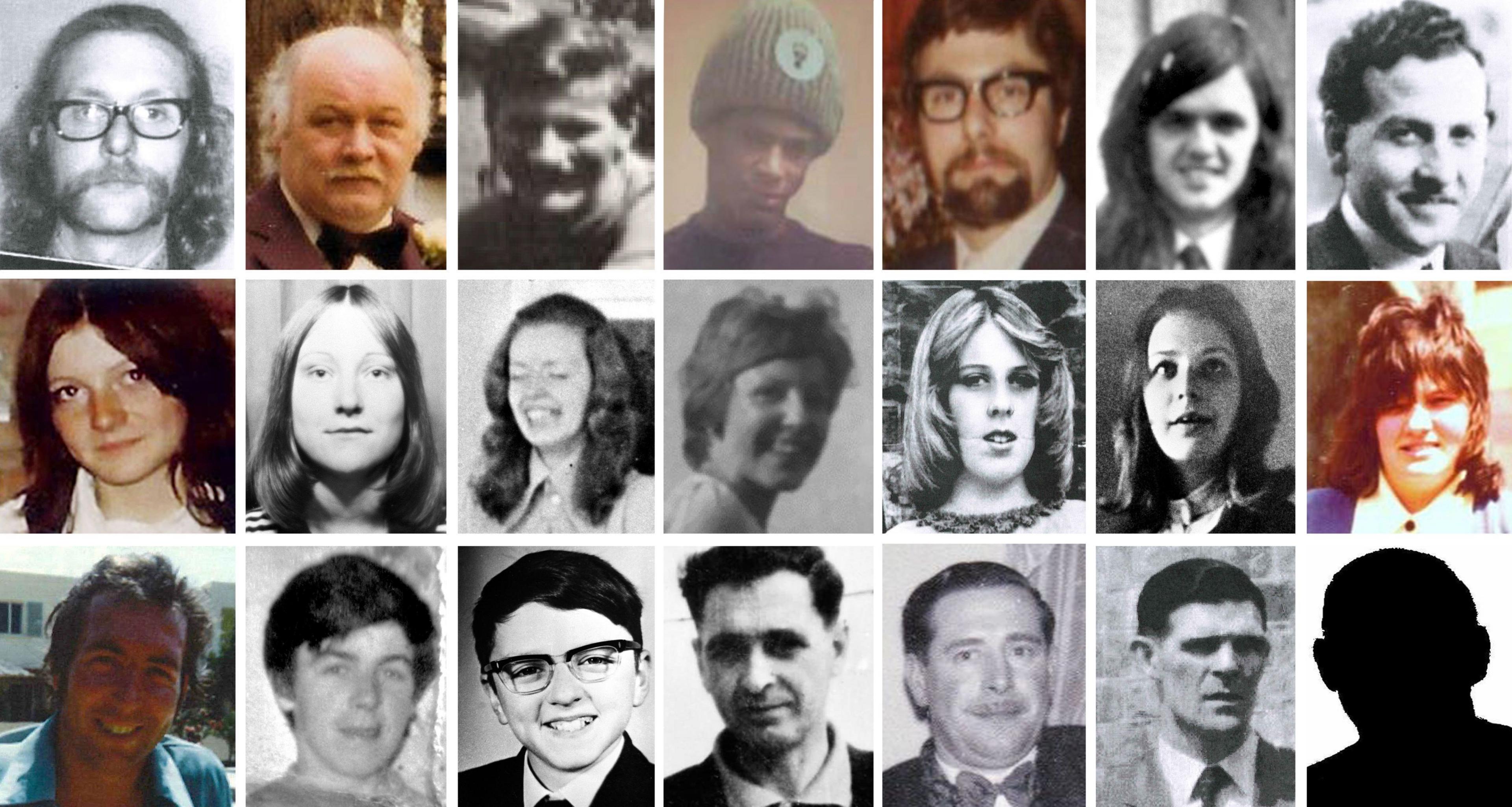
Twenty one people were killed when bombs exploded in two Birmingham pubs on the evening of 21 November 1974
What will happen during the memorial services?
Those attending the first service will gather at the tree sculpture memorial to the victims just outside New Street Station.
The event is for invited guests only and not open to the general public.
Pupils from Bishop Challoner Catholic College have been working on a song which will be performed during proceedings.
The Birmingham Irish Association, external has also invited everyone to pause for a minute at 14:00 to remember the dead.
The later service at the cathedral is open to all and will feature prayers and hymns, led by the Bishop and Archbishop of Birmingham.
It will also be streamed online, external and on a screen outside.
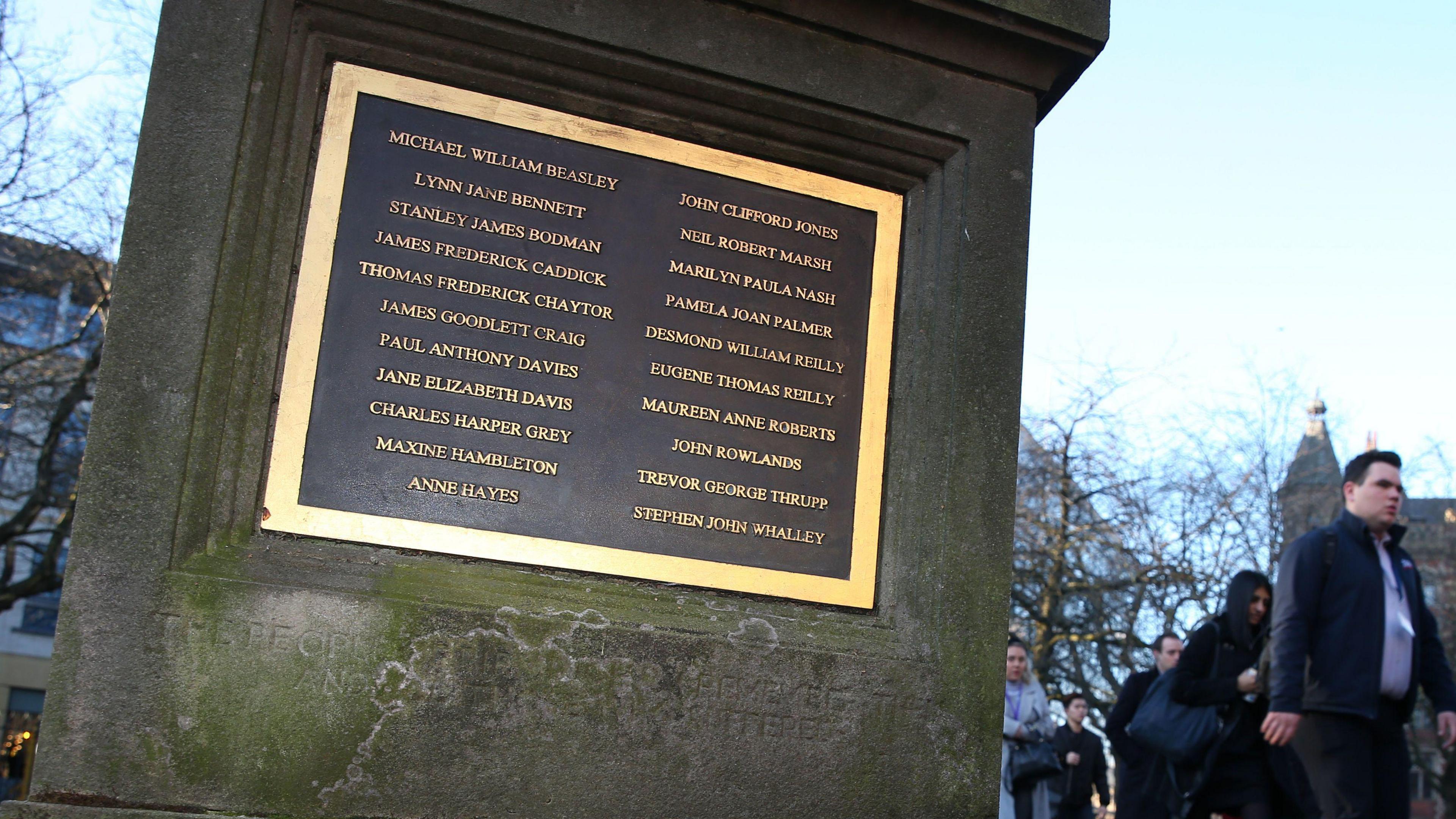
A memorial for the victims is located in St Philip's Cathedral square in Birmingham
Who died in the Birmingham pub bombings?
Seven women and 14 men died in the atrocity.
The names of the deceased are Michael Beasley, Lynn Bennett, Stanley Bodman, James Caddick, Thomas Chaytor, James Craig, Paul Davies, Jane Davis, Charles Grey, Maxine Hambleton, Anne Hayes, John "Cliff" Jones, Neil Marsh, Marilyn Nash, Pamela Palmer, Desmond Reilly, Eugene Reilly, Maureen Roberts, John Rowlands, Trevor Thrupp and Stephen Whalley.

Who planted the Birmingham pub bombs?
Six innocent men were convicted of murder and jailed for life in 1975.
However, the evidence against the men, who came to be known as the Birmingham Six, was discredited over the years and they were freed on appeal in 1991.
While the IRA have never officially admitted responsibility, they are widely believed to be behind the attacks.
The 2019 inquest ruled the victims were unlawfully killed by the IRA, but did not determine the identities of those responsible.
West Midlands Police Chief Constable Craig Guildford has said their investigation remained open and any fresh evidence would be looked at.
The Home Office has told the BBC the government would consider requests for a statutory public inquiry "as soon as possible".
Get in touch
Tell us which stories we should cover in Birmingham and the Black Country
Follow BBC Birmingham on BBC Sounds, Facebook, external, X, external and Instagram, external.
Related topics
- Published4 November 2024
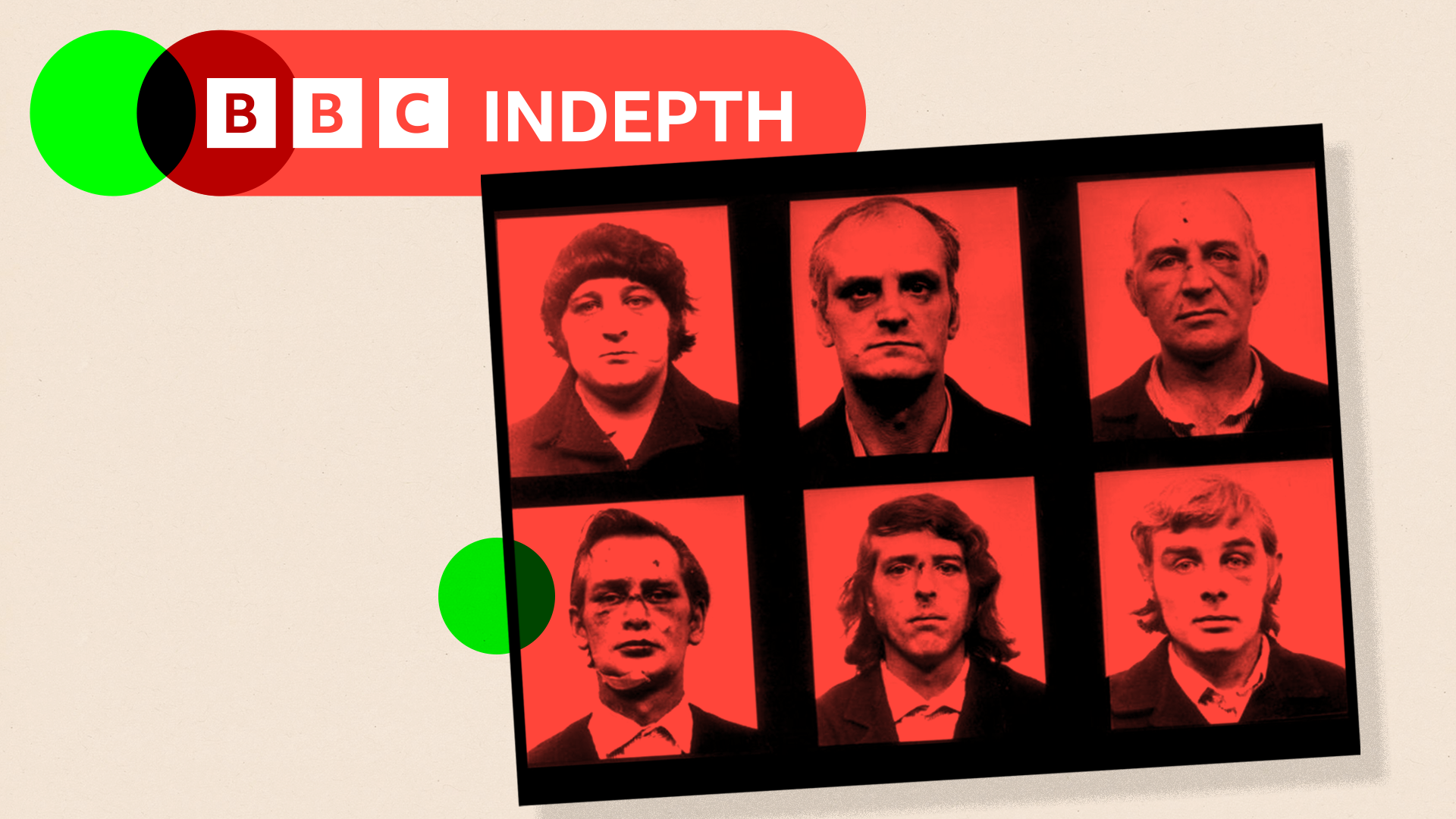
- Published30 October
- Published5 November 2024
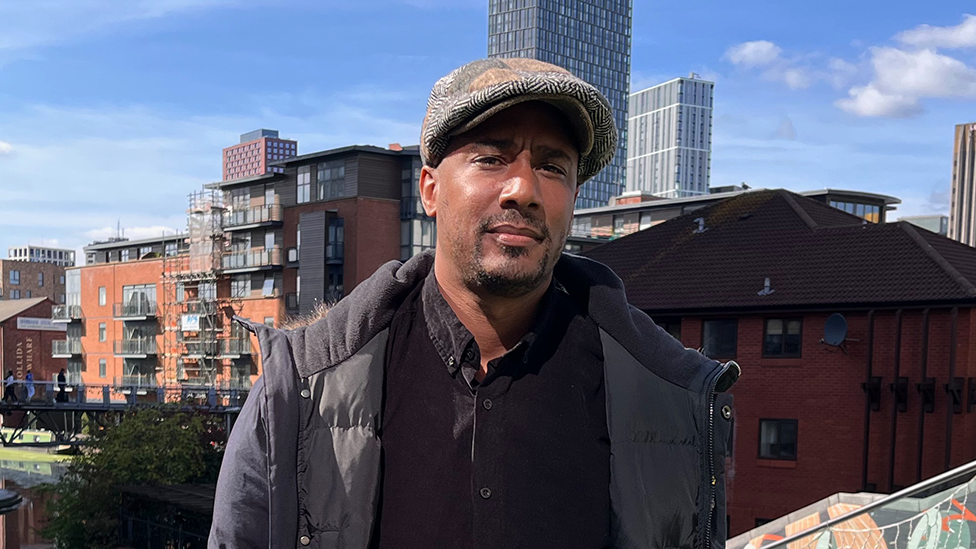
- Published9 October 2024
